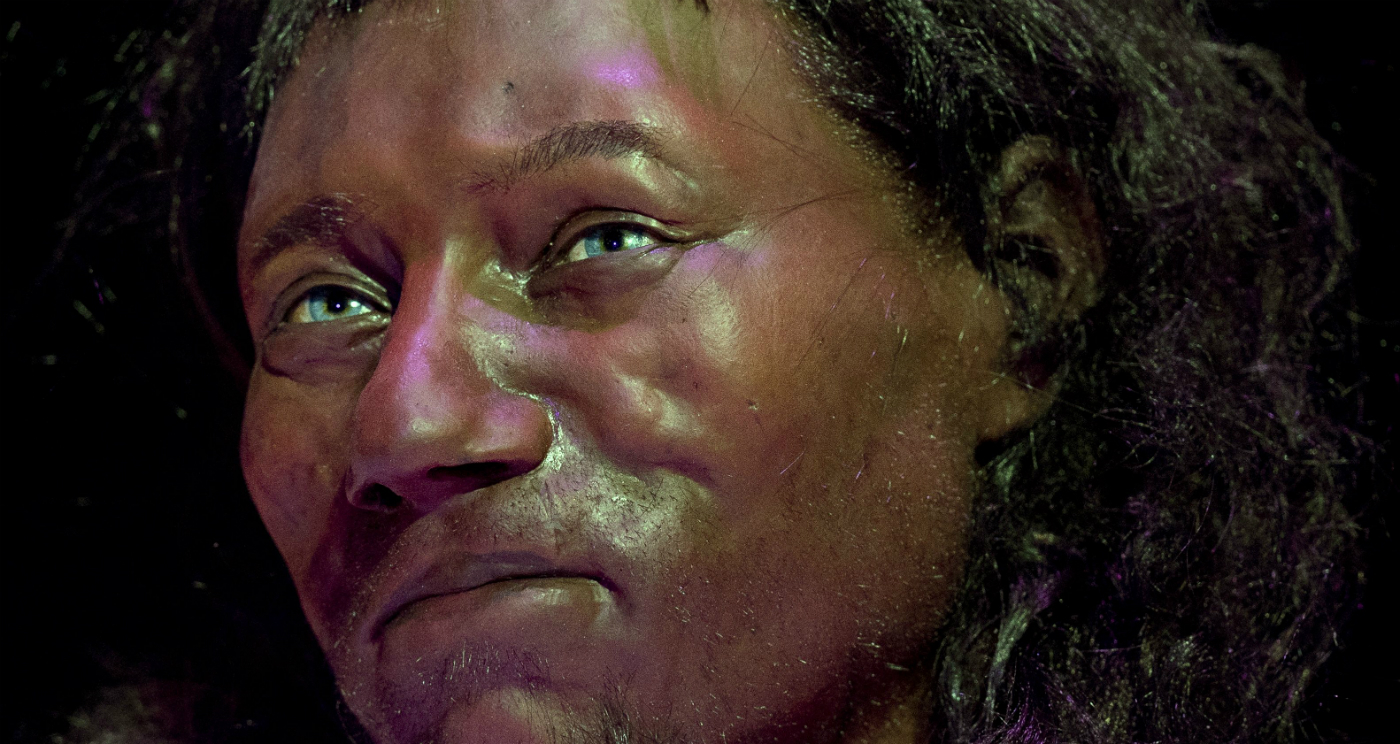Cheddar Man: earliest Britons had dark skin and blue eyes
New research challenges assumptions around British ethnic identity

A free daily email with the biggest news stories of the day – and the best features from TheWeek.com
You are now subscribed
Your newsletter sign-up was successful
DNA extracted from the 10,000-year-old skeleton known as Cheddar Man indicates that early Britons typically had blue or green eyes, with dark curly hair and dark skin pigmentation more usually associated with sub-Saharan Africa.
Experts from University College London (UCL) and the Natural History Museum built a portrait of life in Mesolithic Britain, around 300 generations ago, using DNA from Britain’s oldest complete skeleton, which was discovered in Cheddar Gorge, Somerset, in 1903.
“He is just one person, but also indicative of the population of Europe at the time,” says Dr Tom Booth, an archaeologist at the museum who worked on the project. “They had dark skin and most of them had pale-coloured eyes, either blue or green, and dark brown hair.”
The Week
Escape your echo chamber. Get the facts behind the news, plus analysis from multiple perspectives.

Sign up for The Week's Free Newsletters
From our morning news briefing to a weekly Good News Newsletter, get the best of The Week delivered directly to your inbox.
From our morning news briefing to a weekly Good News Newsletter, get the best of The Week delivered directly to your inbox.
The analysis offers new insight into the first people to resettle Britain after the last Ice Age, says BBC science editor Paul Rincon.
Until recently, it was assumed that humans adapted to have paler skin shortly after entering Europe about 45,000 years ago.
The “groundbreaking discovery was made in a ‘stroke of luck’”, when archaeologists found scraps of DNA in Cheddar Man’s inner ear bone, The Daily Telegraph reports.
A free daily email with the biggest news stories of the day – and the best features from TheWeek.com